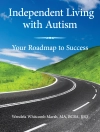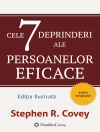If your child rarely shows you that he or she loves you, it can be profoundly distressing. This is the experience of many parents of children with an autism spectrum disorder (ASD), and most fear that it reflects the truth. In fact the truth has generally more to do with the difficulty that young people with an ASD have in communicating like or love for someone physically and verbally. They may not know how to go about expressing themselves in these ways, or understand that family members and friends can find the absence of demonstrative affection upsetting.
This book, by world leading experts Tony Attwood and Michelle Garnett, addresses this issue in practical terms. They provide carefully designed activities for parents to work through with their children to help them to understand and express affection. Their child will learn to identify his or her own and others’ comfort and enjoyment range for gestures, actions and words of affection and the different ways to express feelings for someone, appropriate to each relationship and situation. The activities are simple, straightforward, and very carefully structured, so that they can be undertaken at the pace that works for the individual family. The book also guides the adult through the challenges faced by the child, leading to greater understanding and confidence in their relationship with their child, and increased ability to nurture the child’s ability to form engaged relationships and friendships with others.
Readers of Tony Attwood’s previous books will recognise his warm, positive and empowering approach. The book will be a transformative resource for parents and family worried about their child’s emotional life.
Tabla de materias
Part 1. Introduction. 1.1. Why children and adolescents who have Asperger’s syndrome (autism spectrum disorder) need a programme to understand and express affection. 1.2. Aims of the programme. 1.3. Cognitive Behaviour Therapy. Part 2. How the programme works. 2.4. Assessing the ability to communicate affection. 2.5. How to conduct the sessions. 2.6. Activities for each session. 2.7. Overviews of the sessions. Part 3. Sessions. Session 1. Session 2. Session 3. Session 4. Session 5. Recommended resources. References. Appendix. Affection Questionnaires.
Sobre el autor
Tony Attwood, Ph D, is a clinical psychologist from Brisbane, Australia, with over 30 years of experience with individuals with autism spectrum disorders. He is currently Adjunct Professor at Griffith University in Queensland.












